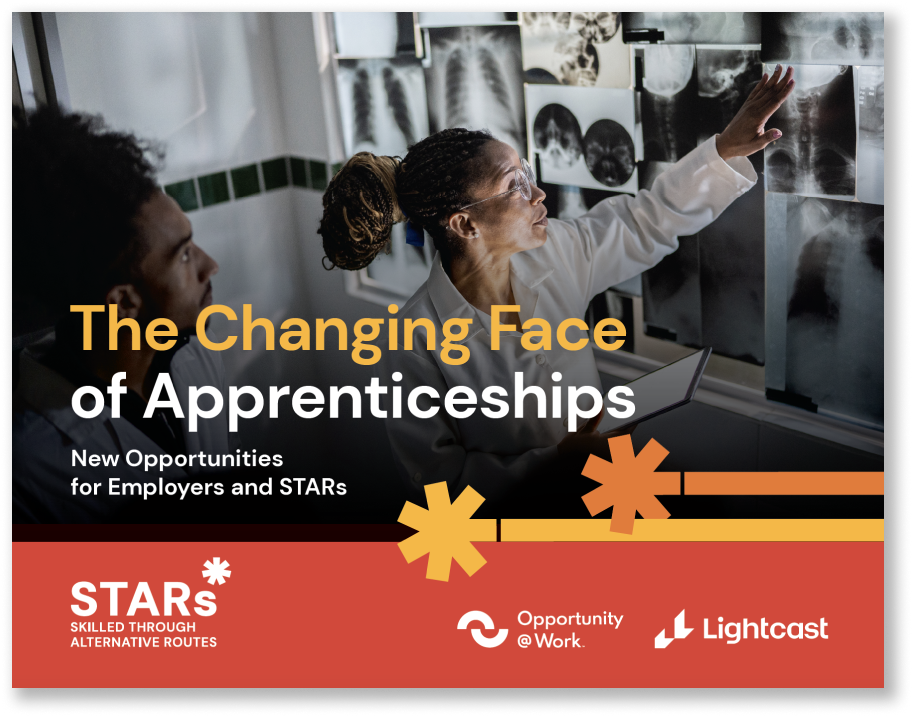
Apprenticeships are ready to meet this moment
In today’s dynamic labor market, apprenticeships are a vital tool for employers to find diverse, skilled talent for their hard-to-fill roles. They’re also on the rise: 40% of all occupations with registered apprenticeships are new since 2010, even expanding into jobs where paid training had been rare. Increasingly, employers are also creating programs on their own to meet their specific requirements.
This research from Opportunity@Work and Lightcast shows how apprenticeships are already on the rise as a solution to bridge the gap and tear the paper ceiling between employers and the talent they need.
More apprenticeships for more jobs
Apprenticeships exist for over half of all occupations in the US—so while they’ve traditionally been concentrated in the trades, programs now exist for a much wider range of jobs. Plus, employers have created informal apprenticeship-type training programs for more than 120 occupations over the past 10 years, adapting the model for roles ranging from personal financial advisors to software developers and sales representatives.
Nearly 40% of new registered apprenticeships are for roles that historically require a college degree.
Expanding opportunities for STARs and businesses
By creating new pathways into jobs, apprenticeships are crucial to career growth for STARs (those “Skilled Through Alternative Routes”), a category that represents over half the workforce and its full diversity. Nearly 40% of new registered apprenticeships are for roles that historically require a college degree. When employers make jobs more accessible through apprenticeships, they see more, and more diverse, workers in their talent pipeline while also enabling economic mobility and success for STARs.
Investing in hard-to-fill roles
Months of record-high demand for workers have highlighted the dramatic impact of hiring challenges in today’s labor market. Employers are learning to adapt: instead of waiting for perfectly-qualified candidates to come along, they’re building programs that develop the necessary skills for their workers. In 2021, the 25 occupations with the greatest hiring demand all had apprenticeship programs.
Room to grow
70%
Of registered apprenticeships lead to
8%
of all available jobs, but informal apprenticeships are on the rise:
120
Employers have created informal apprenticeship programs for over 120 occupations over the past 10 years.

For as long as jobs have existed, apprenticeships have been a way for employers to find the talent they need and workers to gain training and skills to last their entire career. While there are relatively few apprenticeships today, their number is growing. These new apprenticeships create more opportunities for STARs and can serve as a model that employers can follow to acquire the talent they need.



